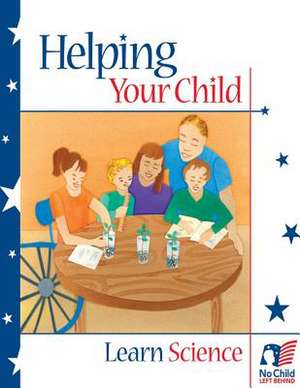Helping Your Child Learn Science
Autor U. S. Department of Education, Office of Communications And Outreachen Limba Engleză Paperback
Preț: 95.00 lei
Nou
Puncte Express: 143
Preț estimativ în valută:
18.18€ • 19.81$ • 15.32£
18.18€ • 19.81$ • 15.32£
Carte disponibilă
Livrare economică 02-16 aprilie
Preluare comenzi: 021 569.72.76
Specificații
ISBN-13: 9781492964919
ISBN-10: 1492964913
Pagini: 76
Dimensiuni: 216 x 279 x 4 mm
Greutate: 0.2 kg
Editura: CREATESPACE
ISBN-10: 1492964913
Pagini: 76
Dimensiuni: 216 x 279 x 4 mm
Greutate: 0.2 kg
Editura: CREATESPACE
